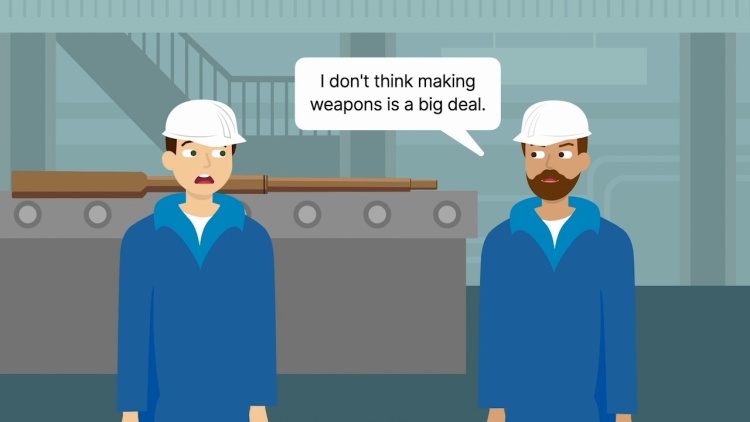Thomas v. Review Board of the Indiana Employment Security Division
United States Supreme Court
450 U.S. 707 (1981)
- Written by David Schleider, JD
Facts
Eddie C. Thomas (plaintiff) was a Jehovah’s Witness who worked for the roll-foundry department of the Blaw-Knox Foundry & Machinery Company (Blaw-Knox) (defendant). Blaw-Knox transferred Thomas to a department that produced turrets for military tanks. Thomas claimed that, due to his religious beliefs, he could not work in a department that produced war materials. Thomas quit his job at Blaw-Knox and sued for unemployment benefits, stating that he could not conscientiously produce turrets used in military tanks without violating his religious principles. Thomas had not objected to producing raw materials in the roll foundry, which made sheets of steel for various industrial uses, because he had not been directly responsible for creating turrets for the tanks that would be used in war. The Review Board of the Indiana Employment Security Division (the Board) (defendant) denied Thomas’s claim for unemployment benefits. The court of appeals reversed, and the Board appealed. The Supreme Court of Indiana determined that Thomas’s objection to his employment was a personal rather than a religious objection. The state supreme court reasoned that Thomas was unable to articulate his religious beliefs with respect to his decision to quit. Further, other employees at Blaw-Knox were Jehovah’s Witnesses and did not have the same objections to working in the same department. Thomas petitioned the United States Supreme Court for review of the denial of his unemployment benefits.
Rule of Law
Issue
Holding and Reasoning (Burger, C.J.)
Dissent (Rehnquist, J.)
What to do next…
Here's why 907,000 law students have relied on our case briefs:
- Written by law professors and practitioners, not other law students. 47,100 briefs, keyed to 996 casebooks. Top-notch customer support.
- The right amount of information, includes the facts, issues, rule of law, holding and reasoning, and any concurrences and dissents.
- Access in your classes, works on your mobile and tablet. Massive library of related video lessons and high quality multiple-choice questions.
- Easy to use, uniform format for every case brief. Written in plain English, not in legalese. Our briefs summarize and simplify; they don’t just repeat the court’s language.





